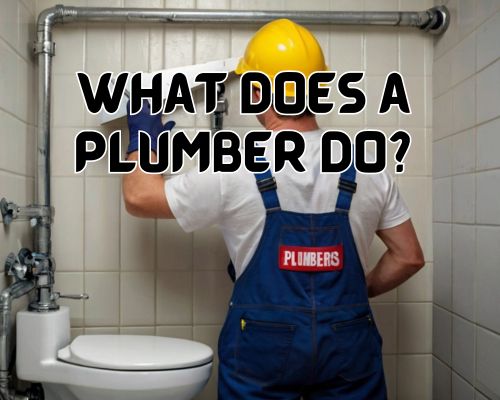If you’re a homeowner, chances are you’ve had to call a plumber at some point.
Plumbers are skilled professionals who install, repair, and maintain plumbing systems in both residential and commercial buildings.

In this article, we’ll take a closer look at what plumbers do, the skills required to become a plumber, and the importance of safety in plumbing.
Plumbing systems are essential for the distribution of water, gas, and waste in buildings.
Plumbers like in Plumber Warragul are responsible for installing and maintaining these systems, which can include pipes, fixtures, and appliances.
They also diagnose and repair plumbing problems, such as leaky pipes, clogged drains, and malfunctioning toilets.
In addition to their technical skills, plumbers also need to have good communication skills. This is because they often work with customers to diagnose problems and explain repair options.
Becoming a plumber requires a combination of technical training and on-the-job experience.
In Australia, plumbers are required to complete an apprenticeship, which typically takes four years to complete.
During this time, apprentices learn the skills and knowledge necessary to become a licensed plumber. This includes how to read blueprints, install and repair plumbing systems, and comply with safety regulations.
Safety is a crucial aspect of plumbing, as plumbers often work with hazardous materials and in confined spaces.
As such, plumbers must be knowledgeable about safety procedures and wear appropriate protective gear when working.
Roles and Responsibilities
As a plumber, your roles and responsibilities can vary depending on the job and the type of plumbing system you are working on. Here are some of the most common tasks that you may encounter:
Installation and Maintenance
One of the primary roles of a plumber is to install and maintain plumbing systems in residential, commercial, and industrial buildings.
This includes installing pipes and fixtures, appliances such as sinks and toilets, and water systems.
Plumbers may also be responsible for installing gas lines and ensuring that they are properly connected to appliances.
To maintain plumbing systems, plumbers must regularly inspect and clean pipes and fixtures to prevent clogs and leaks.
They may also need to replace or repair damaged parts to ensure that the system is functioning properly.
Repair and Troubleshooting
When plumbing systems fail, plumbers are called upon to diagnose and repair the problem.
This may involve troubleshooting issues with appliances such as water heaters or garbage disposals, or repairing leaks and clogs in pipes and drains.
Plumbers must be skilled at identifying the source of the problem and determining the best course of action to fix it.
In emergency plumbing situations, they must be able to work quickly and efficiently to prevent further damage to the building or equipment.
Inspection and Compliance
Plumbers like in Plumber Warragul, may also be responsible for inspecting plumbing systems to ensure that they meet local codes and regulations.
This may involve reviewing blueprints and other documents to ensure that the system is installed correctly, as well as testing the system to ensure that it is functioning properly.
In addition, plumbers must be knowledgeable about building codes and standards to ensure that the plumbing system is in compliance.
They may need to obtain permits and work with local officials to ensure that the system meets all necessary requirements.
Professional Development
As a plumber, there are various ways to develop your skills and advance in your career. Here are some key areas to focus on:
Education and Apprenticeship
Becoming a plumber typically involves completing an apprenticeship, which combines on-the-job training with classroom instruction.
Apprenticeships can last up to 4-5 years, and during this time, you will learn technical skills such as how to install and repair plumbing systems, as well as soft skills such as communication and problem-solving.
To become a licensed plumber, you will need to complete a certain number of hours of training and pass an exam.
Some plumbers also pursue additional education, such as a diploma or degree in plumbing or a related field.
Skills and Certification
Plumbers need a range of skills, including technical skills such as the ability to read blueprints and use tools, as well as soft skills such as communication and problem-solving.
Certification can help demonstrate your skills and knowledge to potential employers and clients.
In Australia, plumbers can become certified by completing a Certificate III in Plumbing, or by obtaining a license from a state or territory plumbing authority.
Some plumbers also choose to become a Master Plumber, which involves additional training and certification.
Workplace Dynamics
Plumbers may work in a variety of settings, from construction sites to residential homes. They may also be on-call for emergency service calls. In addition, they may work long hours or irregular schedules.
Some plumbers are members of labor unions. These unions can provide benefits such as training and recommendations.
Physical strength and flexibility are important for plumbers. They may need to lift heavy equipment or work in tight spaces. Additionally, attention to detail is crucial, as even small mistakes can cause leaks or other issues.
Overall, professional development is key for plumbers looking to advance in their careers. By focusing on education, skills, and workplace dynamics, you can build a successful and rewarding career as a plumber.